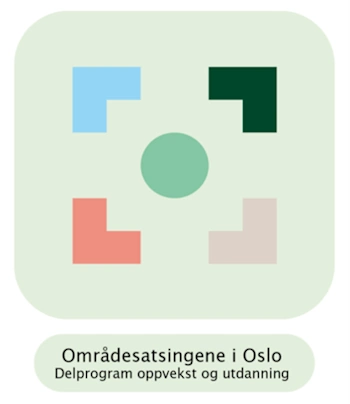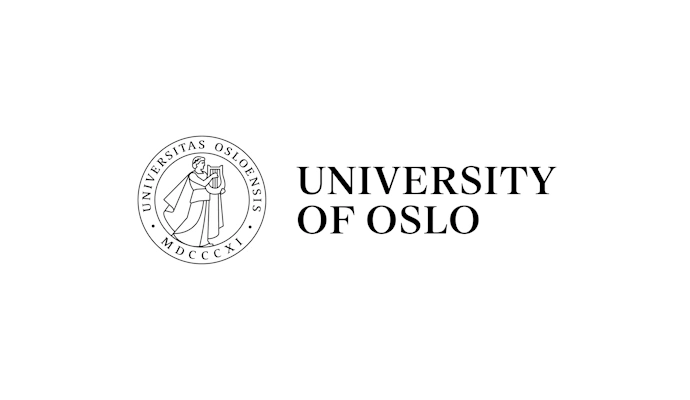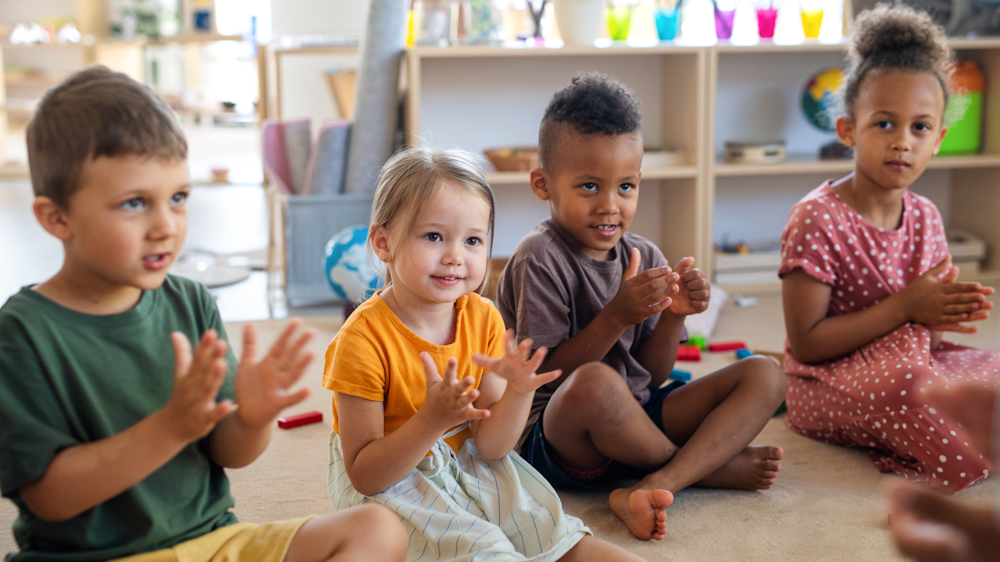The Department of Education, University of Oslo, welcomes you to this two-day conference in June 2024.
The content of the presentations on the two conference days is connected and will be of interest to everyone who is concerned with how we can support children's learning and development at home, in preschool and school.
Programme description
International scholars from Harvard Graduate School of Education and New York University will participate on both days.
On June 12th, the topics will target researchers in the field.
On June 13th, the topics will target policy makers and leaders in the educational sector, as well as researchers. On this second day, we will also present two Norwegian intervention studies: the Extend study and the Oslo Early Education Study (Språksterk).
We will use this opportunity to celebrate Professor Vibeke Grøver's long-standing contribution to research on children's language learning.
Full programme: Wednesday June 12th
09:00–09:15: Opening of the conference
09:15–09:45: On the context in the decontextualized – reflections on language learning (Vibeke Grøver, University of Oslo)
09:45–10:45: The importance of abstract conversations for preschool children’s language and cognitive development (Meredith Rowe, Harvard University)
Research is converging on the importance of back-and-forth conversations for language development and learning.
In this talk I will provide evidence that during the preschool years, children who engage in more conversations, and specifically more conversations about abstract or decontextualized (removed from the here and now) topics, are found to have better later oral language skills as well as skills in other cognitive domains.
10:45: Coffee break
11:00–12:00: Infants’ behaviors over time & space generate feedback loops for learning (Catherine S. Tamis-LeMonda, New York University)
Infant language learning has long intrigued developmental scientists. Lucky for us, the study of learning continues to inspire lively theoretical debates. Are babies equipped with core capacities that guide acquisition, or do they construct knowledge from the bottom up? Are environments impoverished at one extreme, too complex at the other, or rich with regularities that channel learning?
Notably, addressing such questions requires transparency in one’s theoretical orientation. I personally view language learning (as all domains of learning) to be an active, bottom-up process that is embedded in a richly informative and socially contingent environment.
And so, in this talk, I present studies of infants’ everyday behaviors in the everyday home environment. I illustrate how exuberant behaviors across domains of object play, walking, and talking generate perceptual and social feedback loops that are vital to early word learning: Behaviors in the moment affect subsequent behaviors within and across domains, elicit prompt, multimodal inputs from caregivers, and cascade to learning in real time and over age.
I conclude with the importance of studying infant language development in ecologically valid settings to preserve and document the richness of behaviors over time and space.
12:00: Lunch
12:30–13:30: Coaching for quality in early childhood settings (Catherine Elizabeth Snow, Harvard University)
It is well documented that preschool teachers who receive coaching offer more cognitively challenging instruction and engage in more productive use of time. In only a small number of studies, though, do these changes in teacher behavior translate into improved child outcomes. It is worth noting that measures of the emotional warmth of teachers in preschool classrooms demonstrate generally high scores with or without coaching.
This pattern no doubt reflects the shift in the U.S. early childhood system over the last 25 years from an extreme focus on free play and social development in preschool to a greater emphasis, for better or worse, on cognitive and language skills as the desired outcomes of pre-kindergarten programs.
Without denying the importance of engagement and opportunities for play, U.S. educators have responded to increasing concerns about disparities between children from better- vs. under-resourced homed and between native English speakers and dual language learners in their performance in conventional classrooms – a disparity that shows up as early as kindergarten and often grows alarmingly through the elementary years.
Thus coaching for quality and richness of cognitive and language supports in the preschool classroom has become an urgent target of research interest. Starting from the evidence that in a public school system coaching supported both teacher performance and improved child outcomes, we undertook to study the role of the same coaching supports in a new set of classrooms operating (like most preschool education in the U.S.) in community-based centers with fewer resources, a broader set of goals for serving families, and less professionalized teachers.
The findings offer guidance for researchers working with informal or under-resourced early education programs about how they differ from formal, school-system-aligned programs.
13:30: Coffee break
13:45–14:45: Supporting early language and socio-emotional development among Syrian and Rohingya refugee children: Evidence from Lebanon and Bangladesh (Hirokazu Yoshikawa, New York University)
Humanitarian contexts such as the Syrian and Rohingya refugee crises are growing around the world, with over 220 million children and youth displaced or in conflict-affected settings in 2023. The vast majority of these children are in low- and middle-income countries. However, lessons from supporting these children's early language and socio-emotional development may be relevant for supporting refugee, migrant, and displaced children and families in higher-income countries.
In this presentation, I will summarize evidence from two large-scale experimental evaluations of programs to support early childhood development – one for Syrian refugee families in Lebanon, and the other for Rohingya and host community families in Cox's Bazar district, Bangladesh (which includes the largest refugee camp in the world currently).
14:45: Coffee break
15:00–16:00: Languages, literacy, and learning throughout adolescence: The need to affirm and amplify students’ voices (Paola Uccelli, Harvard University)
Supporting adolescents’ complex communication and reading-to-learn skills is at the core of educational equity and excellence today. In a world where knowledge is updated at ever greater speed, where collaboration across differences is ubiquitously required to find solutions to complex problems, and where distant communication is ever more prevalent in learning, working, and civic participation, preparing students to be skilled communicators and independent readers is of utmost importance.
In this context, the large proportions of adolescent students around the world underprepared for the literacy demands of today’s societies represent an urgent global literacy-and-learning crisis.
In this talk, I will focus on adolescents’ language skills as one important, yet still understudied, developmental area relevant to understand and support students’ reading, writing, and learning at school.
My research on multilingual and monolingual students’ school-relevant language learning in grades 4 to 8 has been conducted in collaboration with educators and local researchers in various countries, including the U.S. (English, Spanish/English), Chile, Colombia, Mexico, Peru (Spanish), and Brazil (Portuguese), among others.
Drawing from studies across these contexts and languages, I will present findings that consistently reveal striking individual differences in students’ language skills and their contribution to students’ reading, writing, and learning at school.
Based on evidence from my own work and from the most recent research in the field, I will argue that without understanding individual differences in the language resources that students bring to school and without attending to the language demands for reading, writing, and learning, schools run the risk of maintaining and even exacerbating the inequalities present in the larger society. Educational implications will be discussed briefly.
Full programme: Thursday June 13th
09:00–09:15: Opening
09:15–10:00: The Impact of Children's Educational Media on Emotional Development: Evidence from Jordan and Colombia (Hirokazu Yoshikawa, New York University)
This presentation will focus on evaluations of the effects of recently developed mass media programs for crisis-affected contexts.
Evidence from impact evaluations of two programs – the Ahlan Simsim program focused on emotional development and designed for the Levant area of the Middle East, and Watch Play Learn videos focused on emotional and math development and adapted for Venezuelan refugee and Colombian families in Colombia – will be presented.
Implications for supplementation of preschool curricula with educational media will be discussed.
10:00: Coffee break
10:15–11:00: Pedagogies of Voices: A focus on students’ languages & equitable learning in linguistically diverse classrooms (Paola Uccelli, Harvard University)
Transforming how we support multilingual/multidialectal students’ literacy and learning in schools around the world is at the core of educational equity and excellence today. Drawing from developmental and intervention research with multilingual and monolingual students in grades 4 to 8 in the U.S. and in Latin American countries, I will introduce the Pedagogies of Voices (POV) framework.
POVs is an evidence-based pedagogical vision centered on expanding and affirming students’ voices as a promising component of instructional practices driven by excellence and equity for all. The POVs framework brings together findings from empirical studies that reveal the need to scaffold students’ learning of school-relevant language resources (expanding students’ voices) with findings that highlight the need to do so while welcoming, leveraging, and amplifying students’ full linguistic and cultural repertoires (affirming students’ voices).
Drawing from recent POV-aligned interventions that have yielded significant gains in students’ literacy outcomes, I will share examples of promising classroom instructional practices designed to support (1) students’ language learning in the service of conceptual understanding and (2) students’ sense of belonging and participation in equitable inclusive learning communities.
Far from quick fixes, research evidence highlights the need for transformative and viable educational approaches that embrace the full complexity of preparing students to navigate today’s linguistically demanding and diverse world.
11:00: Coffee break
11:15–12:00: Encouraging parents to infuse language in everyday routines (Catherine S. Tamis-LeMonda, New York University)
Early language skills are critical to school readiness. Unfortunately, children from low-income homes may lag in requisite language skills, with disparities already emerging before 2 years (e.g., Fernald et al., 2013). Notably, exposure to contingent and varied language input at home supports the language skills across of children across all socio-economic strata.
We developed a strengths-based Routine Language Intervention that involved: 1) encouraging caregivers to infuse language into everyday activities, 2) focusing on rich words (defined as nouns, verbs, adjectives, adverbs), and 3) using a community-based participatory approach. Sixty-five families from Spanish-speaking immigrant backgrounds were recruited from three community agencies in New York City.
The Routine Language Intervention emphasized the importance of everyday talk, with focus on four routines—mealtime, dressing, washing, and playtime/reading. Group sessions covered the importance of early language development and parent language input. During home visits, parents received individualized information about infusing vocabulary into routines, including a word board to serve as a visual reminder to label and describe everyday events. Parents then interacted with their infants around the routine, with the home visitor observing and offering feedback.
Parent language increased over the course of the intervention in both the number of words (t(26)= 4.24, p < .001) and the number of unique words per hour (t(26)= 4.00, p < .001). Compared to mothers in a comparison group, mothers who participated in Routine Language used more words (t(39.84) = 4.16, p < .001) and more unique words per hour (t(27.99) = 3.41, p < .01). Parents used more mealtime-related words, grooming-related words, play-related words, and names of household objects, indicating an effect of the intervention across routines.
A strength-based approach, building on the activities that parents naturally engage in with their children effectively enhances parent talk to infants. Moreover, parents welcomed the message that rich language input does not require specific activities or objects: It can happen anytime, anywhere.
Our findings have implications for developing low-burden, easy to implement language interventions for parents, early childhood educators, and other infant caregivers.
12:00–12:30: Lunch
12:30–13:15: Creating high-quality, language-rich, learning environments in preschool classrooms (Meredith Rowe, Harvard University)
Building on the research showing that extended conversations between caregivers and preschoolers is a powerful means for promoting both language and cognitive development, I provide strategies for preschool teachers and administrators to incorporate more conversations into their preschool classrooms.
13:15: Coffee break
13:30–14:15: The role of content in improving children’s play, teachers’ performance, and preschool outcomes (Catherine Elizabeth Snow, Harvard University)
Though the presence of explicit curricula in early childhood classrooms is often viewed as in conflict with a commitment to free play, exploration, and child autonomy, in fact when used appropriately early childhood curricula can promote the quality of play while at the same time supporting autonomy and promoting long-term academic outcomes.
Play is not content free. Its content is guided by the artifacts available (e.g., dolls, trucks, water or sand, blocks, jungle gyms) and by the scripts or routines that children are familiar with (playing, for example, house, school, dragons, or superheroes).
There are two limitations to these sources of content.
First, in socially homogeneous societies, there is considerable overlap among those scripts or routines across children, but in heterogeneous groups of children the shared knowledge is more limited and thus perhaps harder to use as a base for social play.
Second, the exploitation of shared and routine knowledge excludes opportunities to support children in learning about topics more distant from daily life – travel with a penguin to the Arctic, the adventures of Paddington Bear in London, the relationship between pigs and spiders in a barn, and so on.
Providing teachers with theme-related read-aloud books and guidance in how to engage children during read-alouds enriches play and learning at the same time.
14:15: Coffee break
14:30–15:30: Two recent shared reading intervention studies implemented in the larger Oslo area (Vibeke Grøver, Veslemøy Rydland, Siri Steffensen Bratlie and Tone Sofie Røsholt Ovati, University of Oslo)
15:30–16:00: Closing of conference
Practical information
The event is free of charge and will be conducted in English.
Coffee/ tea and sustainable snacks will be served.
To register for the conference, please click the button at the top of this page
More about the international keynote speakers
Professor Catherine Snow (Harvard Graduate School of Education)
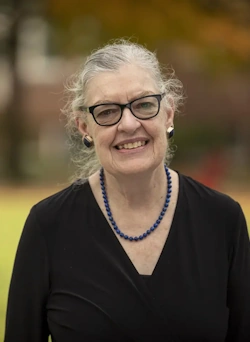
Snow has, over her lengthy career, opened our understanding of multilingual children’s development, how oral language and literacy skills are acquired, as well as the tools to improve children’s language and literacy outcomes across the preschool and school years.
Professor Catherine Tamis-LeMonda (New York University)
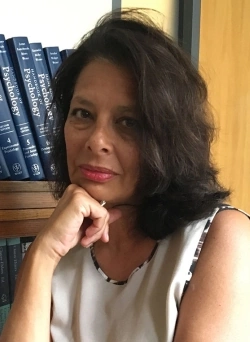
Tamis-LeMonda examines infant and toddler learning and development in social and cultural contexts. She seeks to understand how mothers’ and fathers’ interactions with children relate to children’s developmental trajectories and, conversely, how emerging skills in children influence their everyday learning experiences and interactions with parents.
Professor Hirokazu Yoshikawa (New York University)

Yoshikawa studies the effects of public policies and programs related to immigration, early childhood, and poverty reduction on children’s development. He conducts research in the United States and in low- and middle-income countries.
Professor Paola Uccelli (Harvard Graduate School of Education)
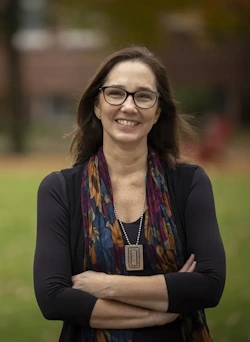
Uccelli studies socio-cultural and individual differences in multilingual and monolingual learners’ language development throughout the school years. Her research focuses on identifying high-utility language resources that support reading, writing, and learning at school and on the design and evaluation of interventions that affirm and amplify all students’ voices.
Professor Meredith Rowe (Harvard Graduate School of Education)
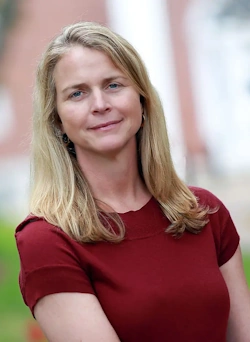
Rowe's work focuses on uncovering features of children's early communicative environments that contribute to early language and cognitive development and applying this knowledge to the development of intervention strategies for caregivers.
Organisers and funders
If you have any questions concerning the conference, please contact Professor Veslemøy Rydland at the Department of Education, University of Oslo.
The event is hosted by the Department of Education at the University of Oslo. It is funded by The Municipality of Oslo (Områdesatsingene i Oslo, delprogram oppvekst og utdanning), as well as The Research Council of Norway.
